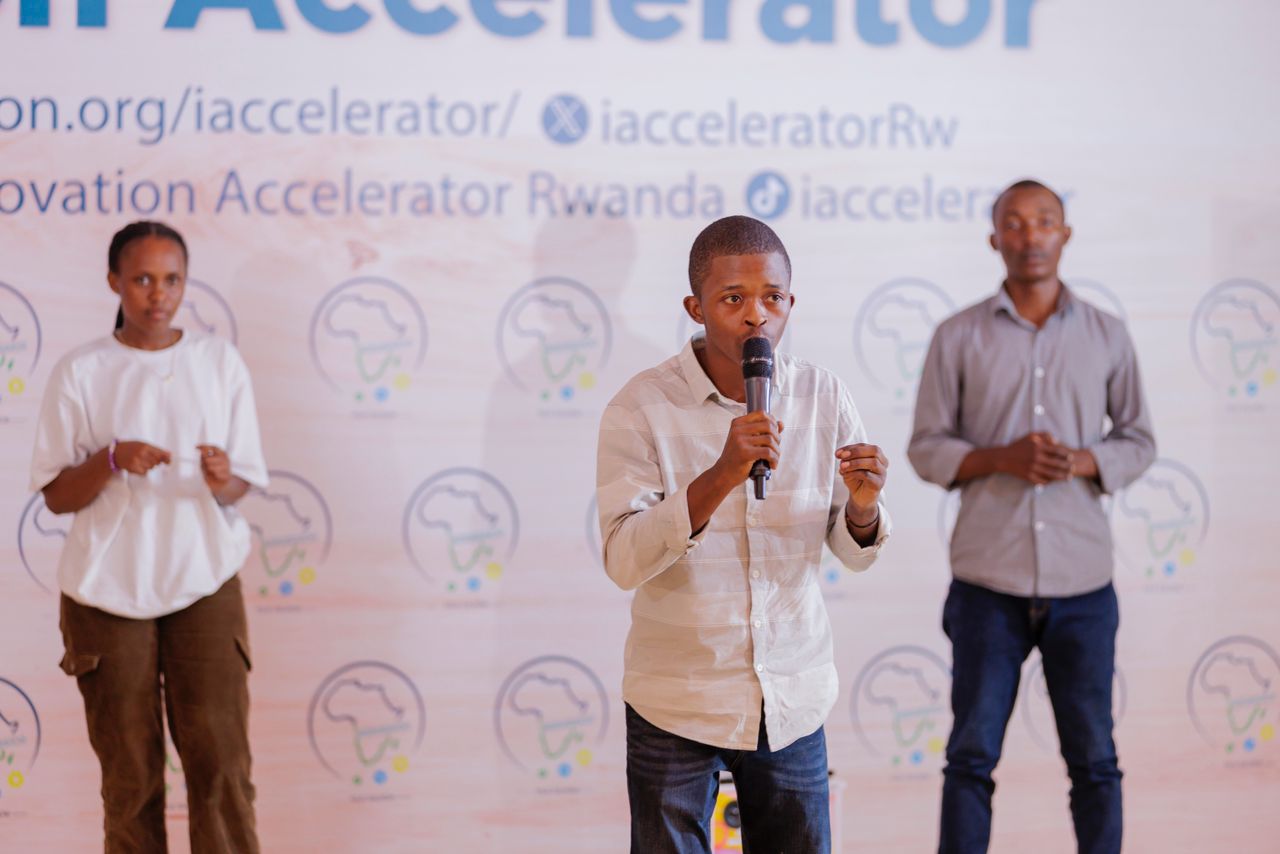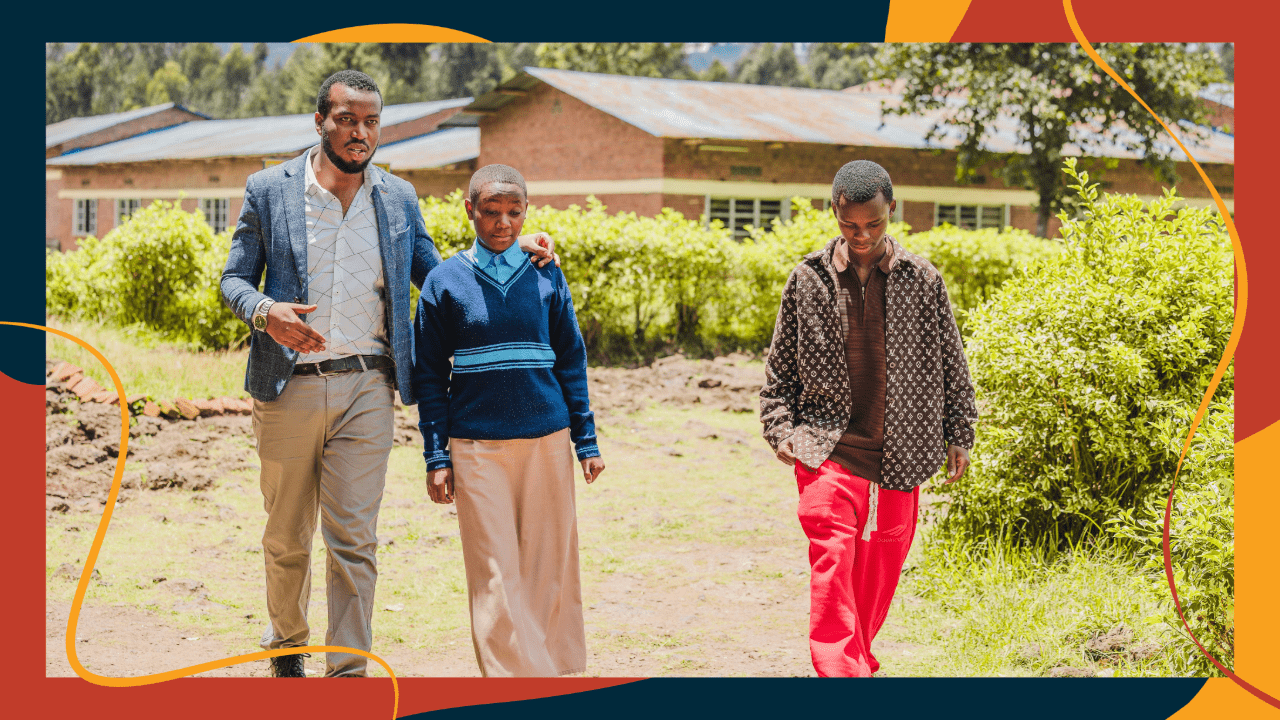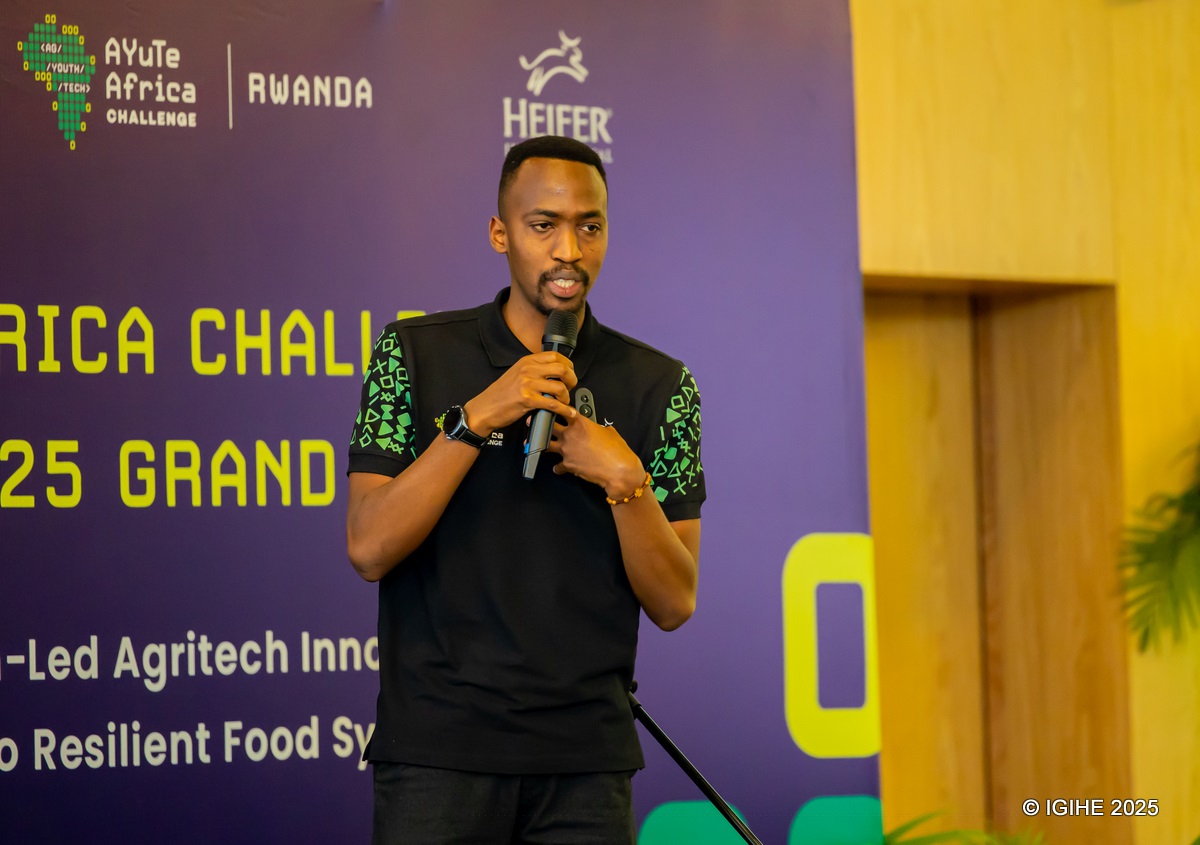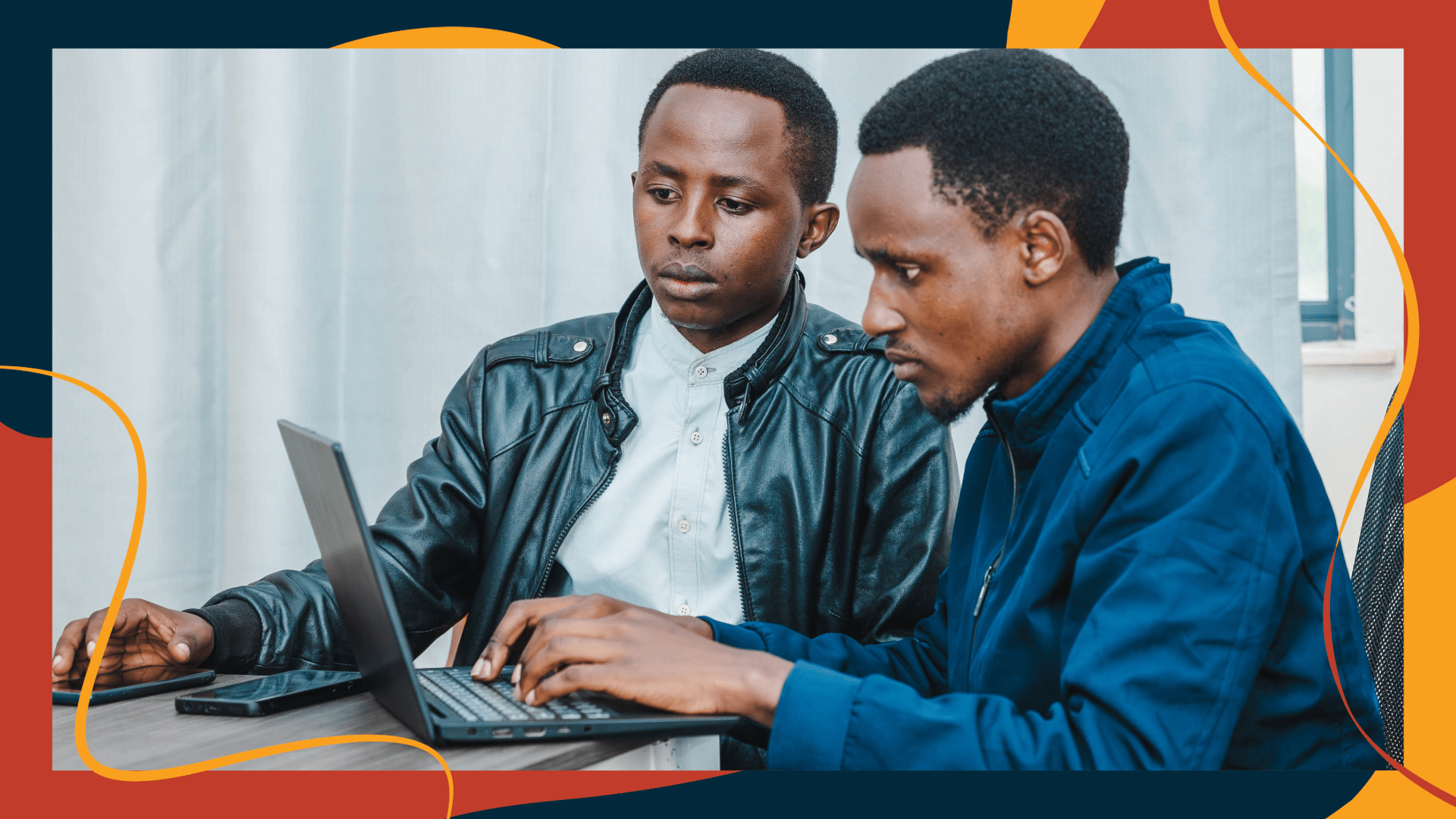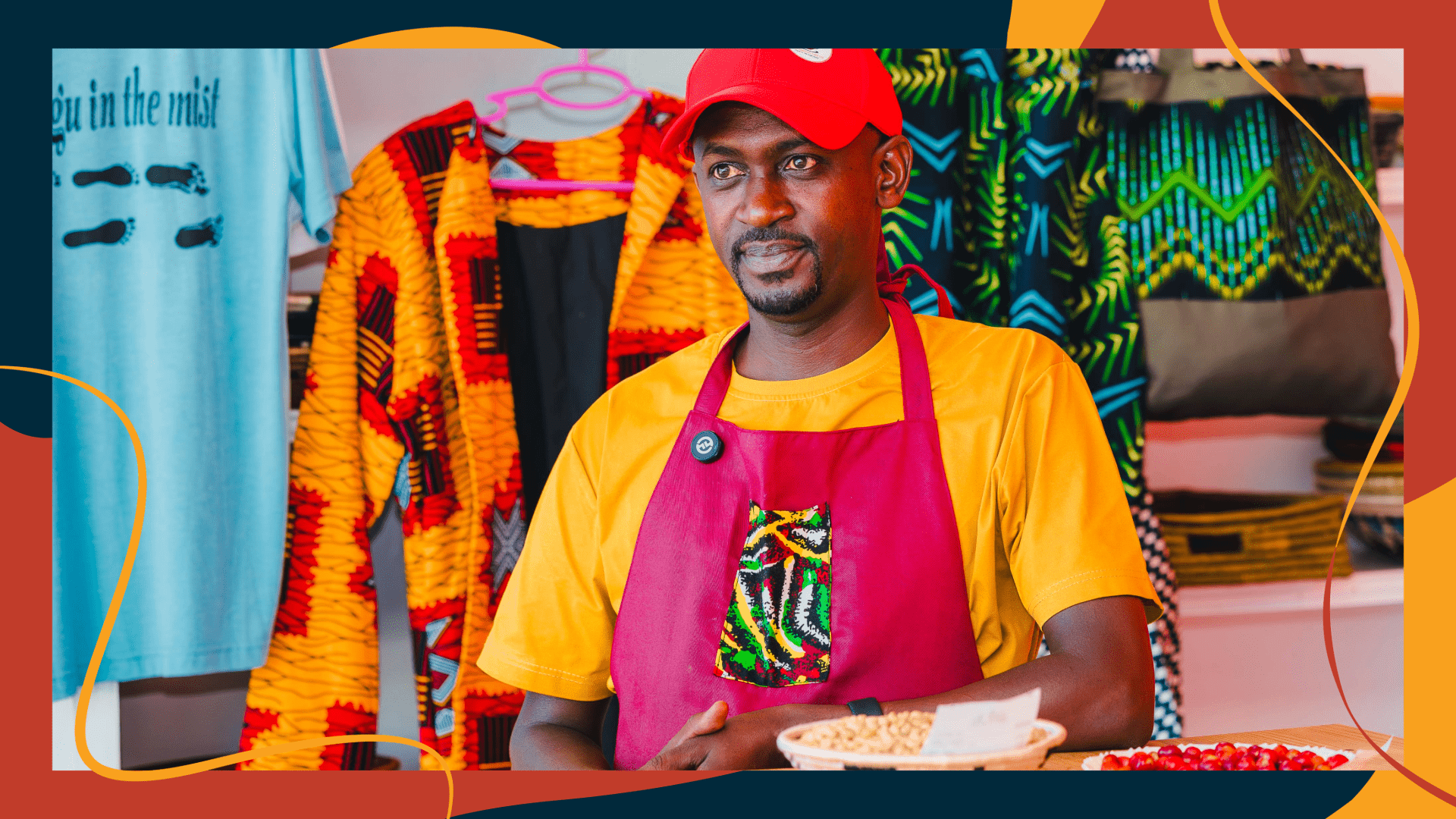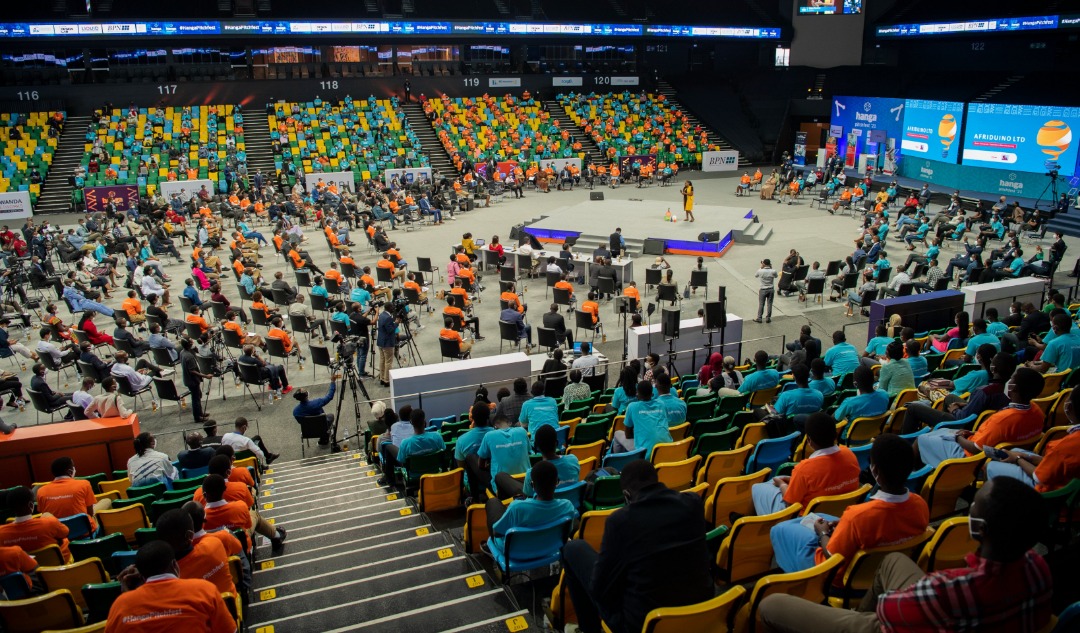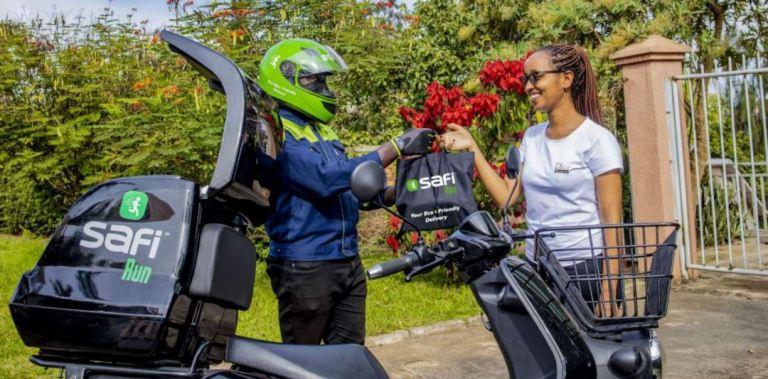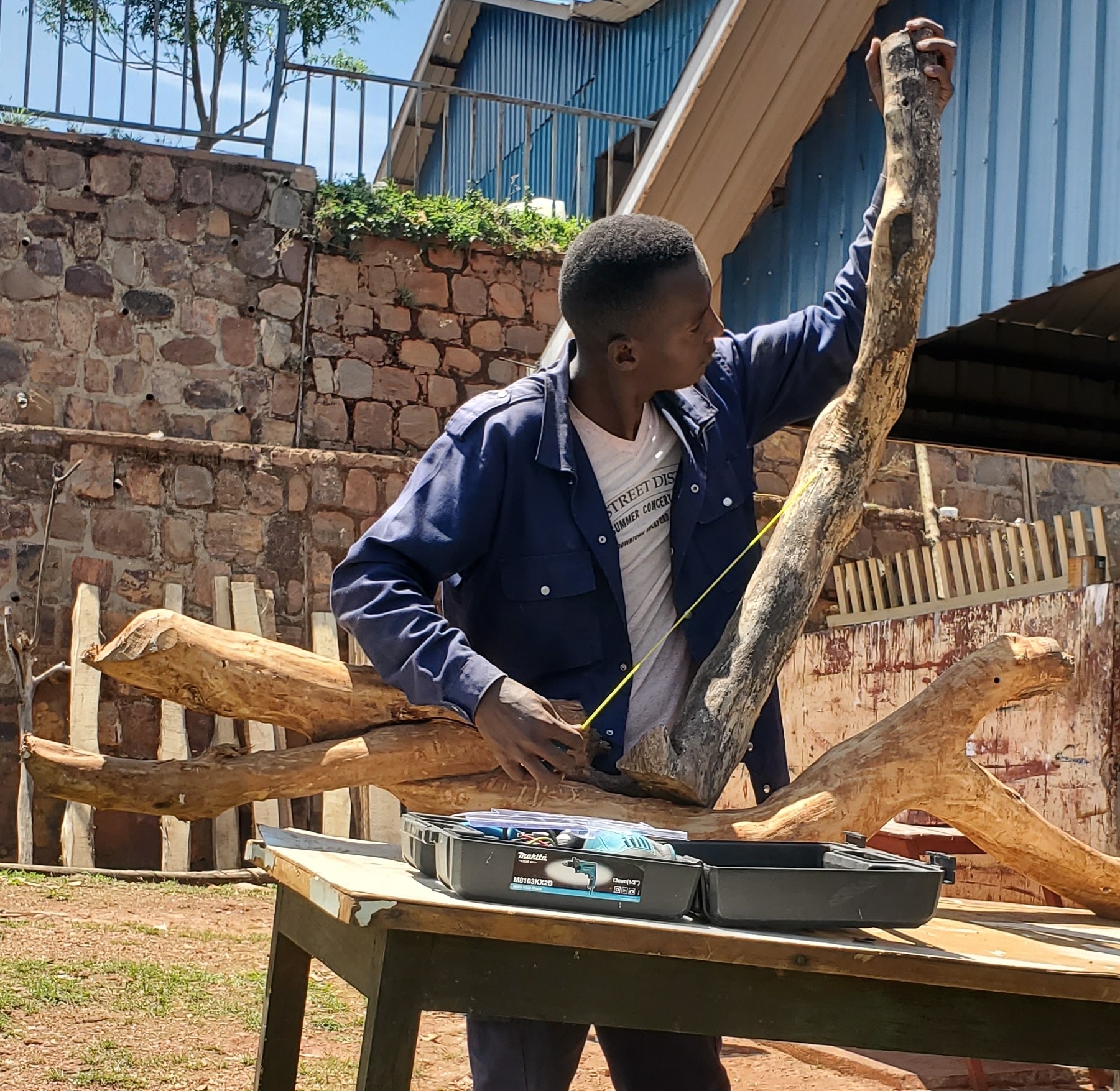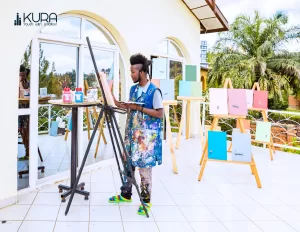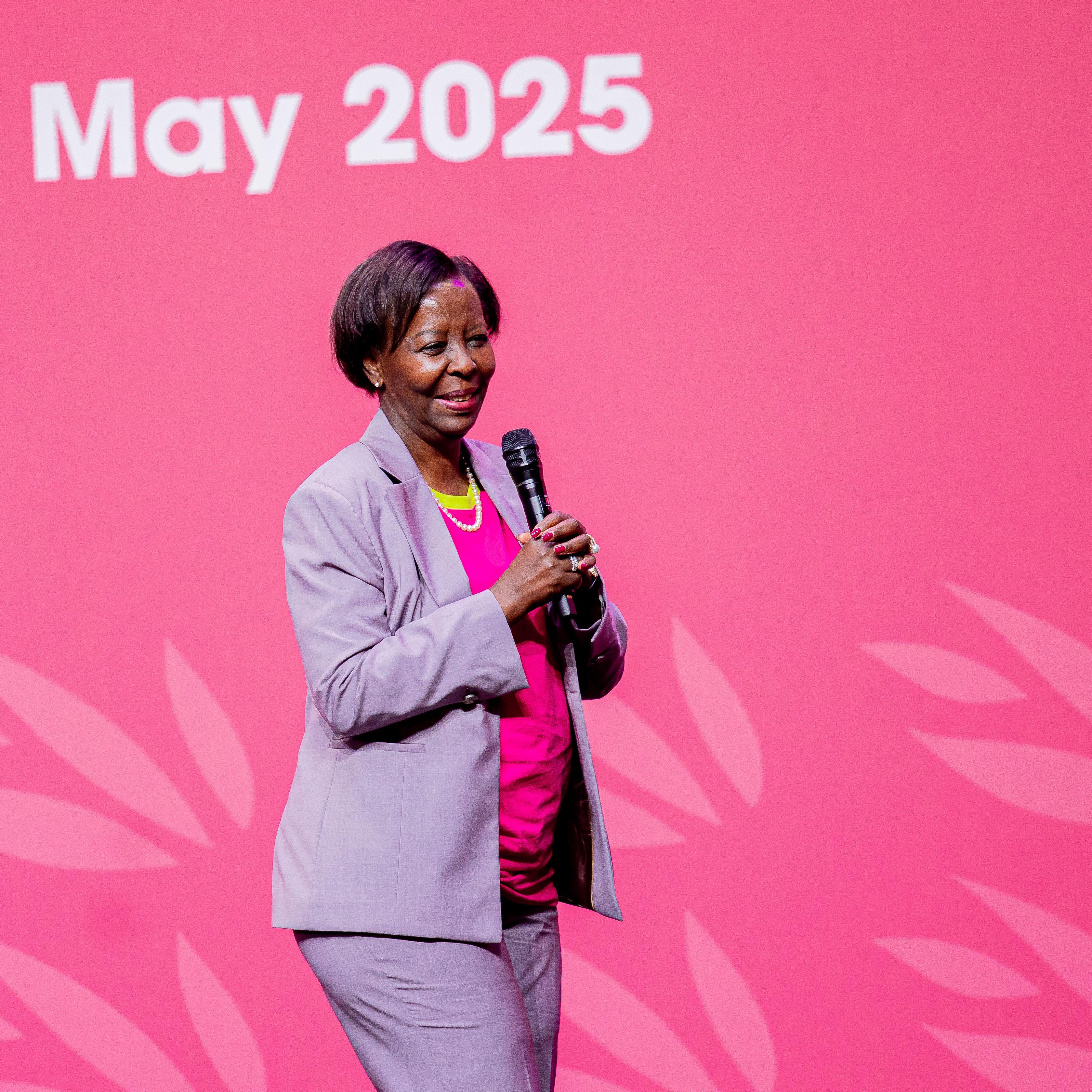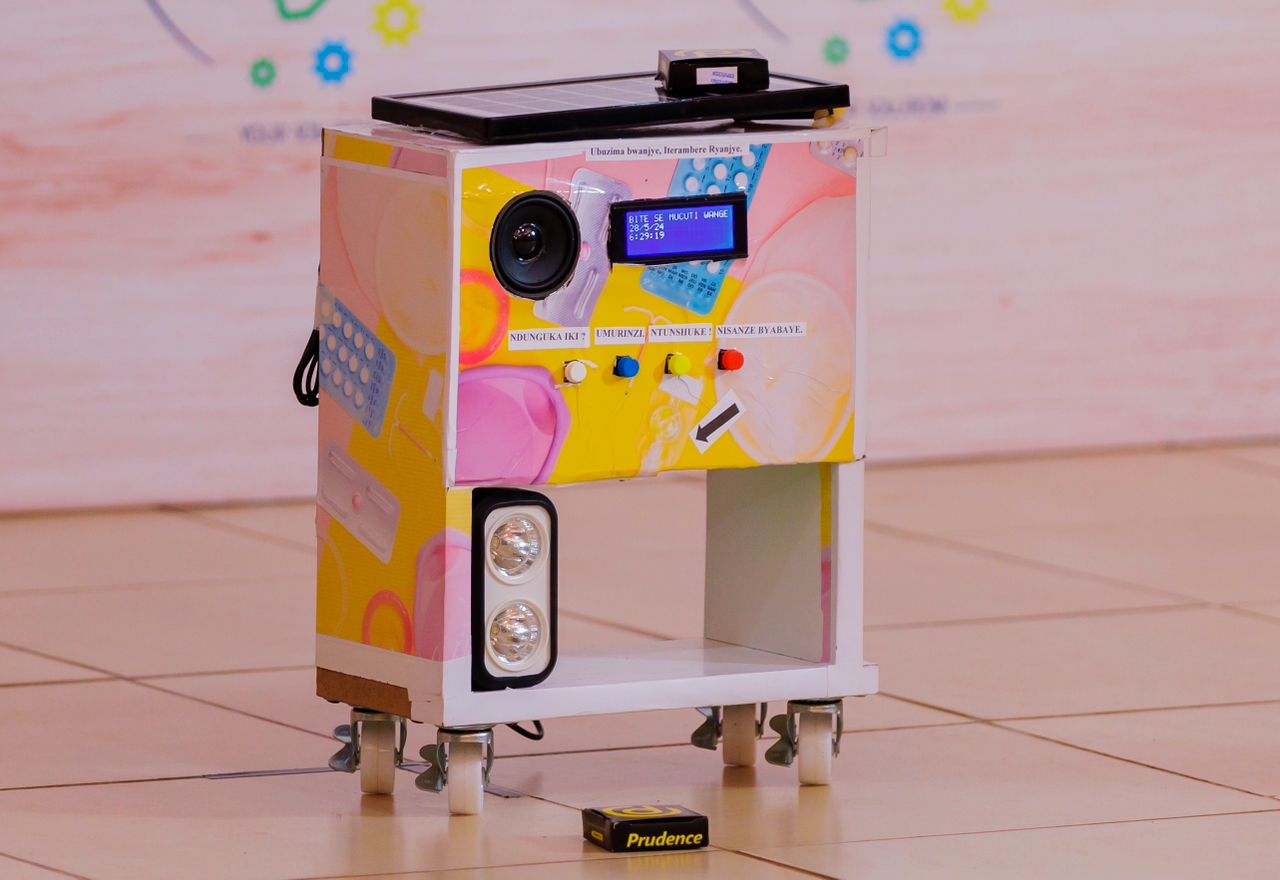Jean Claude Iradukunda is a fourth-year student at the University of Rwanda, studying Electronics and Telecommunication Engineering (ETE).
He has a project that won a $10,000 prize (over 13 million Rwandan Francs) in the sixth edition of the iAccelerator competition (iAccelerator6). This project is a collaboration between him and two of his colleagues.
These competitions, initiated in 2016, aim to provide youth with a platform to contribute sustainable solutions to existing problems.
Through this program, young entrepreneurs receive funding and training to enhance their skills and offer solutions to societal challenges.
Iradukunda and his colleagues’ project came in second place. It is a technology-based kiosk that will dispense condoms without the need for a salesperson.
This kiosk, named ‘Mushuti Wanjye Kiosk,’ will assist youth who feel embarrassed about buying condoms, as explained by the creators.
Iradukunda told us, “We realized that the issue preventing youth from accessing sexual and reproductive health information and services comfortably is the sense of shame.”
The entrepreneur stated that this inspired the idea to create a technological device called ‘Mushuti Wanjye Kiosk,’ which dispenses condoms without requiring a salesperson.
The device consists of two parts: the first part contains sensors where the condoms are stored. When a person places their hand near the sensors, the kiosk will dispense the condoms.
The second part is a coin slot that will also dispense contraceptive pills, as explained by Iradukunda.
After receiving the award, Iradukunda mentioned that the money would be used to create 100 such kiosks to be distributed across the country, with the help of various partners to ensure the condoms are provided for free.
He stated that this initiative would be very beneficial and appreciated by the youth.
“There are already many places where these services are provided, but what we want is to offer these services in a more impactful and less intrusive way,” he said.
In general, condoms are used for family planning, preventing unintended pregnancies, and protecting against diseases like HIV/AIDS and other sexually transmitted infections.
Youth are often encouraged to avoid engaging in sexual activities, but they are also advised to use protective measures, like condoms, to avoid the consequences when abstinence is not practiced.
